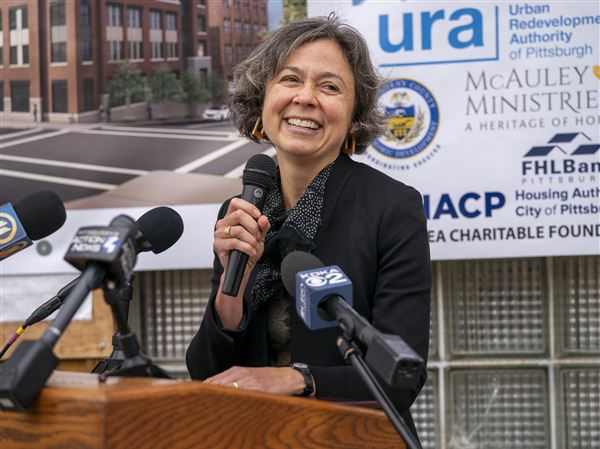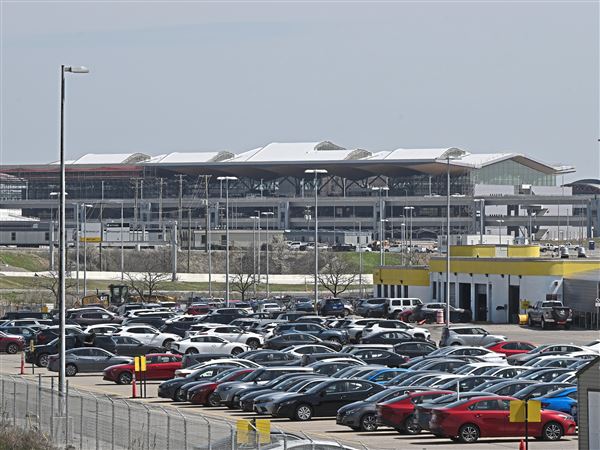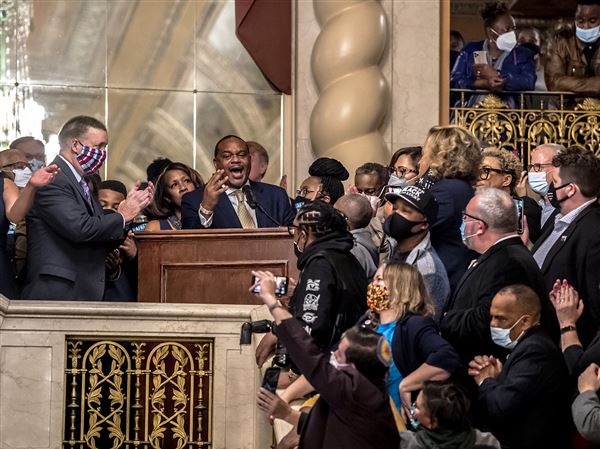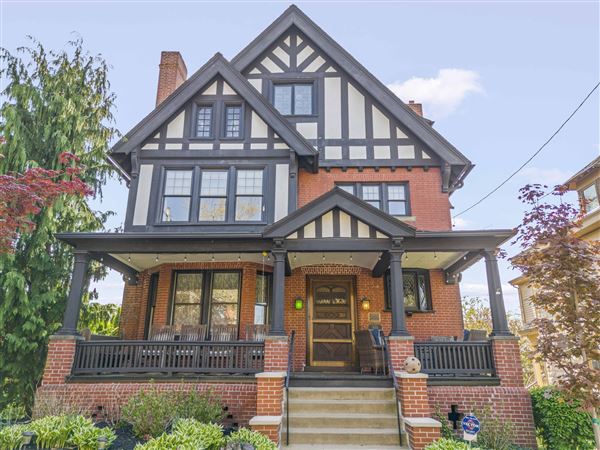From the Second Presbyterian Church on Garland Drive in Carlisle, Cumberland County, the Rev. Jennifer McKenna can see, hear and smell the constant stream of 18-wheelers speeding by on Interstate 81.
The associate pastor also has seen members of her congregation and neighbors sickened by the sooty air pollution produced by the thousands of big diesel trucks that daily roll through and often stop to idle in her town, where the interstate and the Pennsylvania Turnpike cross paths.
The Environmental Quality Board, an independent agency responsible for approving all environmental regulations in the state, has scheduled a hearing to accept comments on the rule at 1 p.m. Feb. 15 at DEP's regional office, 400 Waterfront Drive, on Washington's Landing (Herrs Island) in Pittsburgh. Additional hearings are scheduled for Feb. 12 in Allentown, Lehigh County, and Feb. 13 in Harrisburg.
People wishing to testify should call the Environmental Quality Board at 717-787-4526 at least one week in advance of the hearing to reserve time for testimony, which is limited to 10 minutes for each person. Written comments can be submitted by March 17, to the EQB, Box 8477, Harrisburg, PA, 17105-8477, or via express mail to the Rachel Carson Office Building, 16th Floor, 400 Market St., Harrisburg, PA, 17101-2301.
Comments also can be submitted electronically by completing and submitting the online form at www.dep.state.pa.us
In 2005, she started the Clean Air Board of Central Pennsylvania and petitioned the state to reduce the idling of trucks at truck stops and terminals. Those efforts paid off. A proposed rule -- published in the Pennsylvania Bulletin Jan. 12 -- limits the amount of time long-haul truckers can idle their vehicles to warm or cool their engines, and heat, air-condition, run appliances and provide other amenities to their bunks and cabs during federally mandated rest periods.
"We've got 3,000 trucks idling 24/7 every day here," the Rev. McKenna said. "It may not solve all our air problems in Carlisle, but it will make a difference."
The proposed rule, which could be finalized by this summer, would limit idling -- that is, sitting motionless with the motor running -- by long-haul trucks to five minutes per hour. It also would affect many delivery trucks, school buses, transit buses and motor coaches.
Legislation with almost identical language, that would reinforce the proposed regulation, has been introduced in the state Senate. At least 14 states, including many of those around Pennsylvania, already have anti-idling laws.
At a time when Pennsylvania must reduce air pollutants to meet new federal standards, diesel fuel prices are topping $3 a gallon and new technology is available to provide electric power to more truck stops, opposition to the regulation is almost nonexistent.
The state Department of Environmental Protection estimates that diesel engine idling for more than 15 minutes -- known as "long duration idling" -- totals about 22.3 million hours a year in Pennsylvania, approximately 95 percent of which is during mandated truck rest periods.
If each of the 13,000 long-haul trucks in the state each day used alternative means to provide power during their rest periods, fuel use would be reduced by more than 20 million gallons a year.
Once the state rule is fully implemented, it will reduce annual nitrogen oxide emissions by 1,610 tons, volatile organic compounds by 45 tons and airborne soot emissions by 30 tons. Such exhaust emissions contribute to ground-level ozone, which can cause or exacerbate breathing problems, especially for people with pre-existing respiratory problems such as asthma, bronchitis and emphysema.
As part of its campaign for an anti-idling rule, the Rev. McKenna's group took out an ad in local newspapers that was signed by 100 doctors who said the idling was causing major medical problems -- increased asthma, heart disease, heart attacks and childhood respiratory problems -- in the community.
Ron Ruman, a DEP spokesman, said implementation of the rule would reduce emissions enough to necessitate an amendment to the state's federal pollution control plan.
"It should definitely help," Mr. Ruman said, "especially in areas where there is a concentration of trucking and truck terminals."
Jim Runk, president of the Pennsylvania Motor Truck Association, said he supports the state legislation and will speak in favor of the regulation at one of the three public hearings scheduled by the Environmental Quality Board next month. He said many trucking companies already have told their drivers to stop idling to save fuel.
"This will eliminate any patchwork quilt of idling laws that could develop in Pennsylvania," Mr. Runk said. "There may be a section of the regulation or legislation that needs to be tweaked, but overall it's important to get it done because it will help clean the air, prevent hours of idling and save fuel. It's just smart for everyone."
Allegheny County, which ranks third in the state for risk from diesel soot behind Philadelphia and Delaware counties, approved regulations limiting school bus idling in 2004, and trucks and commercial bus idling in 2005. Drivers face penalties for noncompliance ranging from a warning for first offences to $500. Philadelphia also has anti-idling rules in place, and other locations, including Carlisle, have considered them.
The proposed state rule contains several exemptions for trucks with sleeper compartments, but those exemptions expire on May 1, 2010. Vehicles also are exempt if the idling is needed for active loading or unloading of passengers, to operate work-related mechanical or electrical systems, and for maintenance, repairs, inspections and safety-related purposes.
Passenger and school buses will be allowed to idle for up to 15 minutes during a 60-minute period to provide heat or cooling when nondriver passengers are on board.
Mr. Ruman said the state has already invested more than $1 million to install alternative power systems at several Pennsylvania Turnpike and interstate truck stops, and more will be available by 2010 when the temporary exemption expires.
Nationally, long-haul trucks and buses use more than 1 billion gallons of fuel a year idling -- about 1 percent of all U.S. oil imports -- at a cost of almost $2 billion. The cost and pollution have prompted recent controls on long-haul diesel idling in other states such as Arizona, California, Delaware, Illinois, Maryland, Massachusetts, Nevada, New Hampshire, New Jersey, New York, Rhode Island, Utah, Virginia, certain counties in Texas and the District of Columbia.
If approved by the EQB, the regulation would go to the Independent Regulatory Review commission for review, with final action expected early this summer.
First Published: January 20, 2008, 10:00 a.m.
















